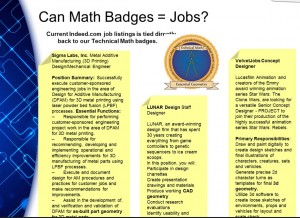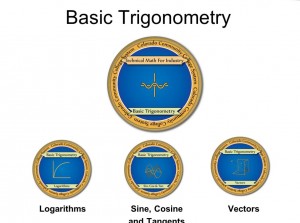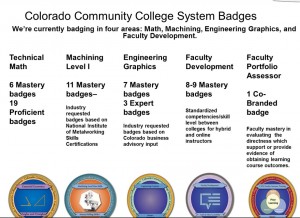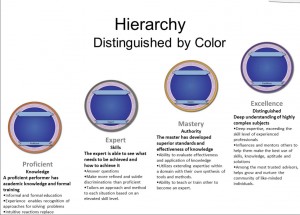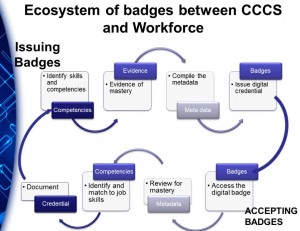Posts Tagged ‘webinar’
Please look on the bottom of this blog entry for more resources
Effective Library Signage: Tips, Tricks, & Best Practices Workshop
Mark Aaron Polger and Amy F. Stempler Item Number: 1541-9212
Effective Library Signage: Tips, Tricks, & Best Practices Workshop
A 90-minute workshop, Thursday, January 5, 2017, 2:30pm Eastern/1:30 Central/12:30 Mountain/11:30am PacificLibrary signage represents the first lines of communication between a library user and the library. Are you doing everything to ensure that your signage is user friendly and inviting? Although we have the best intentions, sometimes our signage can be punitive, contradictory, outdated, or passive aggressive.In this new workshop, Mark Aaron Polger and Amy F. Stempler, library professionals who’ve conducted a four yearlong study at the College of Staten Island, CUNY that involved an extensive signage audit and replacement project, will provide you with the top ten tips to follow when preparing new signage for your library. They will discuss what constitutes “bad” and “good” signage and the importance of developing a signage policy to ensure consistency in design and overall language. Other topics that will be addressed will be placement, ADA compliancy, branding, design, verbiage, and the use of images, language, and font. You’ll come out of this workshop with the best practices to assess your current signage and develop improved signage for your institution.Learning Outcomes
After participating in this workshop, you will be able to:
- Identify the best practices when developing new signage
- Distinguish and follow the steps involved in coordinating a signage audit
- Create a signage policy that is appropriate for your institution
About the Instructors
Mark Aaron Polger is the first year experience librarian and information literacy instructor at the College of Staten Island, City University of New York (CUNY). His responsibilities include promoting library services and resources to first year students and providing library instruction and information literacy classes. Polger’s research interests include library marketing, outreach, and user experience design. He has written and presented on topics ranging from library marketing strategies, faculty outreach, Information Literacy outreach, embedded librarianship, library jargon, and library signage. Polger holds a BA in Sociology from Concordia University, an MA in Sociology from the University of Waterloo, a B.Ed. in adult education from Brock University, and an MLIS from the University of Western Ontario. He is currently pursuing his Ph.D. in Curriculum, Instruction, and the Science of Learning at SUNY University at Buffalo.
Amy F. Stempler is an associate professor in the library department at the College of Staten Island, CUNY, where she has worked since 2008. She holds a Bachelor’s Degree and Master’s Degree in History from The George Washington University and a Master’s Degree in Library and Information Science Degree from the Pratt Institute. Stempler is currently the coordinator of library instruction, and has written on library signage, Jewish history, Judaica librarianship, and the role of archives in environmental history.
|
+++++++++++++++++++++
more on signage for libraries:
Polger, M. A., & Stempler, A. F. (2014). Out with the Old, In with the New: Best Practices for Replacing Library Signage. Public Services Quarterly, 10(2), 67-95. doi:10.1080/15228959.2014.904210
authors’ thesis is that library signs are living documents
http://login.libproxy.stcloudstate.edu/login?qurl=http%3a%2f%2fsearch.ebscohost.com%2flogin.aspx%3fdirect%3dtrue%26db%3dkeh%26AN%3d96086859%26site%3dehost-live%26scope%3dsite
Stempler, A. F., & Polger, M. A. (2013). Do You See the Signs? Evaluating Language, Branding, and Design in a Library Signage Audit. Public Services Quarterly, 9(2), 121-135. doi:10.1080/15228959.2013.785881
To be effective, signage must be consistent, concise, and free of jargon and punitive language.
http://login.libproxy.stcloudstate.edu/login?qurl=http%3a%2f%2fsearch.ebscohost.com%2flogin.aspx%3fdirect%3dtrue%26db%3dkeh%26AN%3d87666251%26site%3dehost-live%26scope%3dsite
+++++++++++++++++
more on the use of signage in the library in this IMS blog:
https://blog.stcloudstate.edu/ims?s=signage
Flipped/Blended/… Teaching/Learning: FridayLive! Collaborative Development Series
Presenters:
Steve Gilbert, TLT Group
Beth Dailey, TLT Group
Dale Parker, Senior Faculty, Cambridge College
Penny Kuckkahn, Nicolet College, Instructional Designer
Robert Voelker-Morris, Faculty Technology Consultant, University of Oregon
Winona Hatcher, Instructional Designer, Augusta University
Date: 11/11/201616
Time: 1:30 PM ET pre session. 2:00 -3:00 PM ET Main event. 3:00 – 3:30 PM ET After thoughts
Description
This is the third in our Flipped/Blended… Teaching/Learning Collaborative Development Series. Faculty considering the next steps toward flipping/blended..teaching/learning and instructional designers and design consultants will all find something of benefit from this series.
In the spring we explored what it means to flip a classroom and added to the flipped classroom toolkit. Over the summer a team of instructional designers assisted a faculty member in designing a flipped lesson. This collaborative development process is the basis of the series.
The third session in our series focuses on Phase 2: Develop the Plan and Identify Resources. Flipped/Blended Teaching/Learning and Integrating Technology Design Approach
+++++++++++++++++
more on blended teaching and learning in this IMS blog
https://blog.stcloudstate.edu/ims?s=blended
In the wake of NMC release regarding digital literacy, https://blog.stcloudstate.edu/ims/2016/10/25/nmc-on-digital-literacy/ (not coincidence, the author is active with NMC)
ALA is offering a webinar:
Rethinking Digital Literacy to Serve Library Staff and Users eCourse
Paul Signorelli Item Number: 1541-9124
http://www.alastore.ala.org/detail.aspx?ID=11469&zbrandid=4634&zidType=CH&zid=38811756&zsubscriberId=1026665847&zbdom=http://ala-publishing.informz.net
Asynchronous eCourse beginning November 14, 2016 and continuing for 5 weeks (includes an extension of 1 week for Thanksgiving)
Estimated Hours of Learning: 24
Certificate of Completion available upon request
Learning outcomes
After participating in this course, you will be able to:
- incorporate ever-evolving definitions of digital literacy into learning opportunities
- draw upon a variety of digital resources to create digital-learning opportunities
- seek additional resources that you can use in your continuing efforts to keep up with new developments in digital literacy in libraries and other learning organizations
What is digital literacy? Do you know how you can foster digital literacy through formal and informal learning opportunities for your library staff and users?
Supporting digital literacy still remains an important part of library staff members’ work, but sometimes we struggle to agree on a simple, meaningful definition of the term. In this four-week eCourse, training/learning specialist Paul Signorelli will begin by exploring a variety of definitions, focusing on work by a few leading proponents of the need to foster digital literacy among people of all ages and backgrounds. He will explore a variety of digital-literacy resources – including case studies of how we creatively approach digital-literacy learning opportunities for library staff and users, and will explore a variety of digital tools that will help to encourage further understanding of this topic.
Now, who is ready to build their digital-literacy skills and help their users become digital literate as well?
eCourse Outline
Part 1: Digital Literacy: Initial Definitions and Explorations
- An overview of various definitions of digital literacy
- Several components of digital literacy
- Exploring Doug Belshaw’s extensive work on defining and fostering digital literacy
Part 2: Digital Literacy: Crap Detection and Other Skills and Tools
- Exploring Howard Rheingold’s approach to crap detection and other digital literacy/net literacy skills
- Participation, collaboration, creativity, and experimentation as digital-literacy skills
- Building our digital-literacy toolkit
Part 3: Digital Literacy in Learning
- The varying digital literacy needs of our youngest students, of teens, and of adults
- Exploring various online resources supporting our digital-literacy training-teaching-learning efforts
- The myth of the digital native
Part 4: Fostering Digital Literacy: Creating Within a Digital Environment
- Creating a framework to promote digital literacy
- Designing workshops and other learning opportunities
- Keeping up in an evolving digital literacy landscape
How this eCourse Works
The eCourse begins on Monday, November 14, 2016. Your participation will require approximately six hours a week, at times that fit your schedule. All activities take place on the website, and you will be expected to:
- Read, listen to or view online content
- Post to online discussion boards
- Complete weekly assignments or activities
Instructor Paul Signorelli will monitor discussion boards regularly during the four-week period, lead group discussions, and will also answer individual questions. All interaction will take place on the eCourse site, which will be available 24 hours a day, 7 days a week. It’s recommended that students log into the site on the first day of class or within a few days for an overview of the content and to begin the first lesson.
User Requirements
Participants will need regular access to a computer with an internet connection for online message boards participation, viewing online video, listening to streaming audio (mp3 files), and downloading and viewing PDFs and PowerPoint files. ALA Editions eCourses are fully compatible with Windows and MacOs.
About the Instructor
Paul Signorelli, co-author of Workplace Learning & Leadership with Lori Reed, is a San Francisco-based writer, trainer, presenter, and consultant exploring, fostering, and documenting innovations in learning. Having earned an MLIS through the University of North Texas (with an emphasis on online learning), he remains active in the American Library Association, the New Media Consortium (educational technology), and the Association for Talent Development (formerly the American Society for Training & Development).
My note: Finally ALA is addressing a huge gap. Namely, letting conservative librarians dress information literacy with the appearance of “digital literacy.”
++++++++++++++++
more on digital literacy in this IMS blog:
Laptops, Tablets & Smartphones: School-Issued or BYOD? Either Way Works!
Title: Mobile Device Management – Strategies for Success
Date: Wed. 11/09 | 02:00 PM EST // 11:00 AM PDT
Register now
++++++++++++++
more on BYOD in education in this IMS blog
https://blog.stcloudstate.edu/ims?s=byod
Instructional Design Librarians #libraries #edtech #highered
http://www.scoop.it/t/blended-librarianship/p/4070053667/2016/10/04/blended-librarians-conversations-instr-design-librarians-libraries-edtech-highered
Thursday, October 13 at 3:00 pm EST with guest Joelle Pitts from Kansas State University Libraries.
++++++++++++++++++++++
more on instructional design in this IMS blog
https://blog.stcloudstate.edu/ims?s=instructional+design
Free Webinar for K–12 Educators and Administrators to Cover Best Tech Practices
https://thejournal.com/articles/2016/07/19/free-webinar-for-k12-educators-and-administrators-to-cover-best-tech-practices.aspx
Best Practices for Effective Curriculum Management (Vimeo)
PowerPoint Slides (PDF)
Attention: sponsored by itslearning (take information with a grain of salt)
The cloud-based learning platform itslearning will host a free tech webinar for K–12 educators and administrators at 1 p.m. EST (10 a.m. PST) Wednesday, July 27. The webinar, available on the itslearning website, will examine best practices in selecting and implementing learning technologies.
Implementation consultant Libby Lawrie will direct the webinar. She’s a former teacher and school administrator, and she frequently presents nationally on instructional technology and virtual education. She’s also a founding member of the International Association for K–12 Online Learning (iNACOL).
The webinar is designed to give education leaders the insight and tools they need to select the right tools for their tech situations. There are many products and choices out there, and Lawrie will provide strategies for choosing the best products and partners, as well as details about the discovery and implementation process. She will share insights and best practices from U.S. districts large and small.
While not mandatory, registration is recommended. Visit itslearning’s webinar site to sign up.
Dell and Microsoft sponsored.
Register for this complimentary webcast on July 19th to learn how your school or district can design a tech curriculum that matches the future needs of your students today.
During this interactive presentation, you’ll hear how Kennewick School District is giving its students a head start with access to modern tech tools they are likely to use in the real world. Find out how the right tech plan can enable innovative teaching and learning at your school.
Join us as Ron Cone, Kennewick School District CIO, shares:
- How to design a tech curriculum that matches your students’ future career needs
- Tips for selecting the right tech to support that curriculum
- Managing the nuts and bolts of deploying and managing that tech
- Assessing curriculum and student success
Register »
Thank you,
Linda Briggs
Senior Contributing Editor
THE Journal
Hyperconvergence: Reducing Costs and Complexity in the Datacenter
http://event.on24.com/eventRegistration/EventLobbyServlet?target=lobby.jsp&eventid=1212965&sessionid=1&key=341C7C23B7933C61879C96A496363BE4&eventuserid=145761676
| Sponsored By: Lenovo |
| This presentation will begin on Thursday, July 28, 2016 at 11:00 AM Pacific Daylight Time.
Audience members may arrive 15 minutes in advance of this time. |
| Public sector data centers have unprecedented challenges and opportunities, and tomorrow’s demands remain uncertain. We know stakeholders, students, and citizens are all demanding more (e.g. modern services, innovative applications, cost-cutting efficiency), putting even greater strain on an organization’s infrastructure and expertise. It’s up to IT to make it all happen, and there’s simply no “one size fits all” solution to optimize data center efficiency. But can hyperconvergence help? |
Cultivating a Library Technoculture: We are Tech Workers!
|
| Your registration for this webinar has been confirmed. All of the information you need to join the webinar is below. Click the “Join Meeting” button to be connected to the webinar.
You will be able to hear the audio for this event through your computer’s speakers. If you prefer to call in, the phone number is listed below.
Conference ID: 27993347
This webinar will be recorded and archived on the TechSoup for Libraries website. Please register for this webinar to receive an email notification when the archive is available.
Please contact webinars@techsoupglobal.org with accessibility requests for live captioning at least 72 hours prior to the event. |
Link to the archived session:
http://www.nrocnetwork.org/professional-development/webinar
“Colorado’s Digital Badging Initiative: A New Model of Credentialing Technical Math Skills and More”.
Educators and innovative industry leaders agree that digital badges are evolving into a key credential that can be used to meet current education and workforce needs. As part of its TAACCCT grant, the Colorado Community College System is leading a collaborative effort to develop micro-credentials or digital badges to serve post-secondary and workforce in partnership. Learn about early pilot uses of digital badges in technical math and advanced manufacturing, as well as plans for the future. The presenter will also share perspectives garnered from her participation in the Badge Alliance/OPEN badges workgroup that is shaping the national conversation on this emerging topic.
Presenter: Brenda Perea, Instructional Design Project Manager, Colorado Community College System
Plan to log on 15 MINUTES BEFORE THE HOUR so you will be up and running before the webinar begins. (It may take a few minutes to download the software to your computer.)
We will begin the webinar promptly at 2:00 PM ET (1 CT/12 MT/11 PT) on Thursday, June 23.
Please send your questions, comments and feedback to: memberservices@theNROCproject.org
How To Join The Webinar
Thu, Jun 23, 2016 1:00 PM – 2:00 PM CDT
Add to Calendar: Outlook® Calendar | Google Calendar™ | iCal®
1. Click the link to join the webinar at the specified time and date:
https://global.gotowebinar.com/join/7204276536935317252/397462206
Before joining, be sure to check system requirements to avoid any connection issues.
Note: This link should not be shared with others; it is unique to you.
2. Choose one of the following audio options:
TO USE YOUR COMPUTER’S AUDIO:
When the webinar begins, you will be connected to audio using your computer’s microphone and speakers (VoIP). A headset is recommended.
–OR–
TO USE YOUR TELEPHONE:
If you prefer to use your phone, you must select “Use Telephone” after joining the webinar and call in using the numbers below.
United States: +1 (914) 614-3221
Access Code: 330-025-475
Audio PIN: Shown after joining the webinar
Webinar ID: 148-791-923
If you are new to GoToWebinar, we suggest that you click the link below and run the GoToWebinar configuration test to ensure your computer is ready to access this online meeting environment.
http://tinyurl.com/GTWtest
If you are using older operating systems, you may need to use GTW web access rather than the desktop application and possibly phone in for audio. See http://bit.ly/1VVCeno for more info.
If you experience problems entering the GoToWebinar room, or with the online tools during the session, please send an email to memberservices@thenrocproject.org.
This webinar will be archived in the “Professional Development” area of the NROC Network at http://www.nrocnetwork.org/professional-development/webinar.
We look forward to your participation.
Sincerely
The NROC Team
webinar
http://www.nrocnetwork.org/colorados-digital-badging-initiative-new-model-credentialing-technical-math-skills-and-more
badges are integrated with the industry partners of the educational institution
how to determine the value of a badge.
Faculty writing a competencies, online and blended environment. All agree that this means competency. Need to faculty buy in, if issuing badges. Objective versus subjective measures. Faculty member is the one who tells students how to earn badges. Not punitive, but a reward.
building the eco system in Colorado. But it can be taken on a national level. Employers in other states to accept. MS, Sisco are issuing badges, which will be internationally.
how does it fit in the bigger picture of credentials. Lumina Foundations. Next project. https://www.luminafoundation.org/
MOOC (Canvas)
Microsoft badging system. https://education.microsoft.com/ViewAll/Badges
brenda.perea@cccs.edu
NROCnetwork.org http://nrocnetwork.org/
badges are transferable. not person to person, but repository
of 200 issues badges, they were shared 6K+ times over social media: LinkedIn, FB etc. by employers.
backpack, or stored in Mozilla backpack. Most of LMS developing badging capabilities.
some LMS want to create their own badging, gatekeep in LMS, but losing
Canvas allows any badging
LCI in any LMS. LMS allow the vehicle to be issued, but does not create it.

